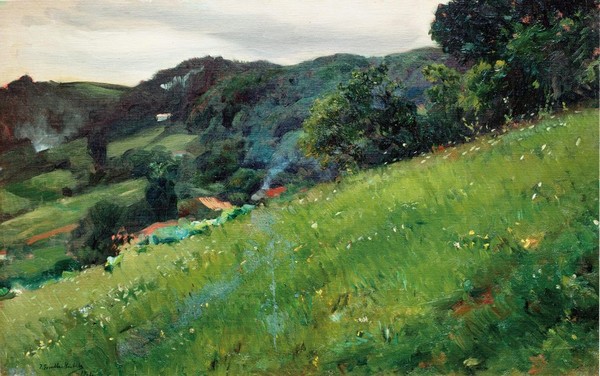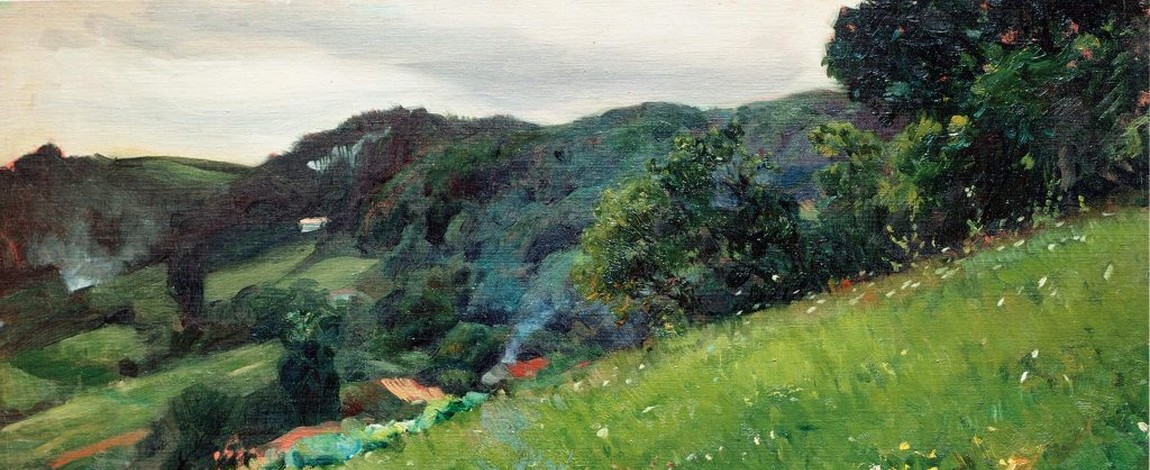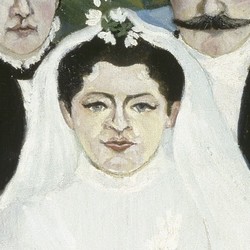
Manuel de Falla premiered La vida breve in Paris, at the Opéra Comique, in January 1914. Shortly afterwards, an artist from the theatre approached him for advice: she wanted to perform some traditional Spanish songs at a concert she was due to perform in July at the Théâtre de l'Odéon. Could he suggest some pieces? At the time, the traditional song presented in concert was an incipient genre in Spain; Falla was a student of Felip Pedrell, the authority on the issue back then, and committed himself to harmonizing several songs.
From his letters, we know that he had to hurry to have the songs in time, but when he knew that they would be sung in a variety show, he withdrew them, and the concert was canceled. It appears that the artist who asked for the songs might have been Encarnación Hurtado, known as “the Malagueñita” (as she was born in Málaga), a flamenco dancer well known at the time. Falla, however, probably didn't know her, hence the misunderstanding.
The composer didn't put aside those songs. He continued to work with them, even making three or four different versions, in some cases, and, as usual, what initially were mere harmonizations became recreations of the traditional materials. The Siete canciones populares españolas were finally premiered in January 1915 in Madrid (Falla had returned from Paris at the outbreak of the war), with soprano Luisa Vela and the composer at the piano. Manuel de Falla didn't write many songs during his career, not even twenty, and they aren't well known, but this collection of folk songs became part of the repertoire. The numerous arrangements (for voice and orchestra, voice and guitar, solo piano, violin and piano, etc.) are a good indication of his success.
This week we'll hear the third song, Asturiana [Asturian Song] my favourite. The original piece is most likely the songbook Cien cantos populares asturianos [100 Asturian folksongs] compiled by José Hurtado and published in 1890. Asturiana is a lament; the poetic voice approaches a pine in search of relief from her sorrow, and the pine mourns with her. The poem and the song very short, and the piano prelude and postlude are long enough compared to the sung part.
Although I began by speaking about Falla, the origin of this article, what I jotted down in my notebook, is an anniversary: yesterday, May 23, marked the centenary of the birth of Alicia de Larrocha. I would like that his article and this song would contribute modestly to spreading the work of this great pianist. We will hear her at the piano; the singer will be soprano Victoria de Los Angeles, who will also be turning 100 this year. I hope you will enjoy the art of the two of them.
Por ver si me consolaba,
Arrimé a un pino verde,
Por ver si me consolaba.
Por verme llorar, lloraba.
Y el pino como era verde,
Por verme llorar, lloraba.
Please follow this link if you need an English translation
















